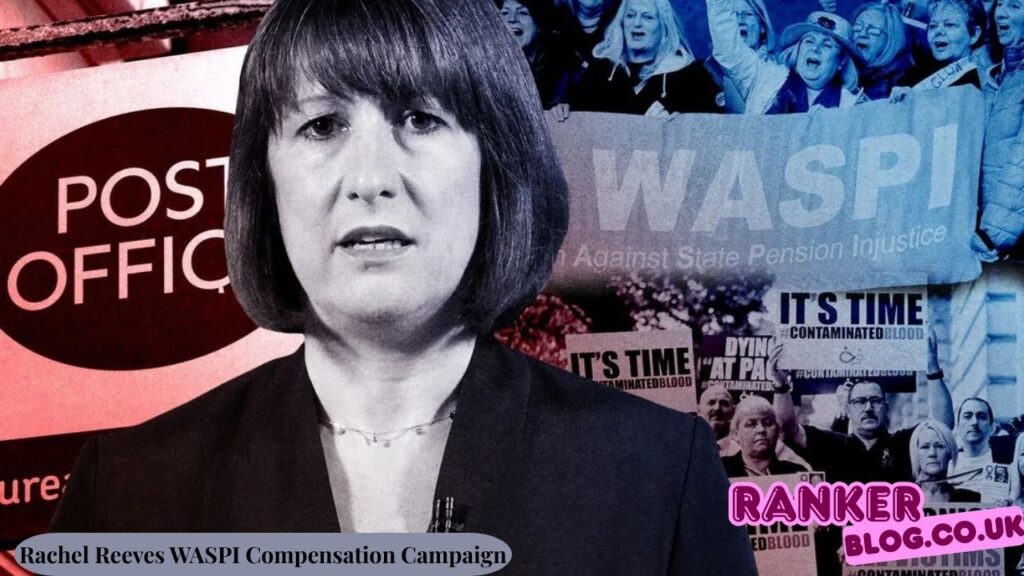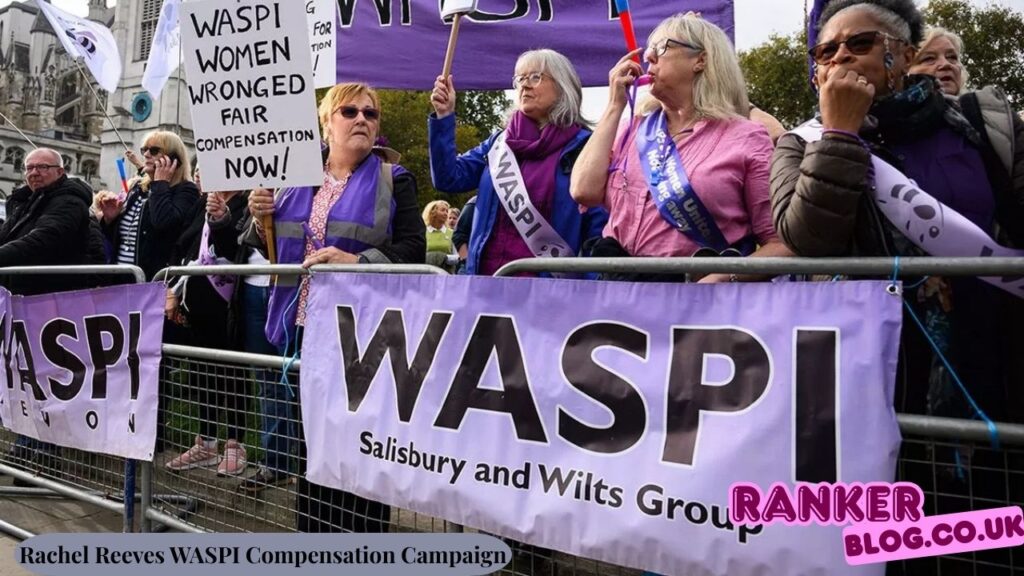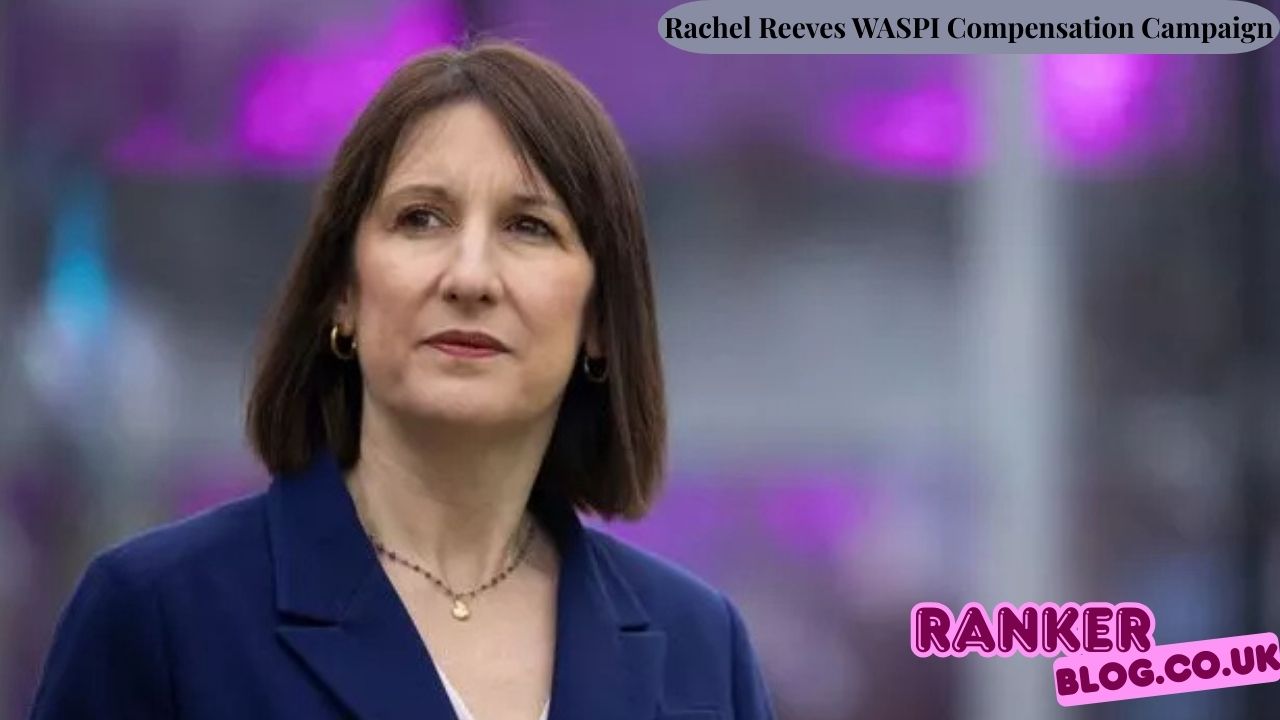The ongoing dispute between Chancellor Rachel Reeves and the WASPI (Women Against State Pension Inequality) movement has become one of the most contentious political issues facing the Labour government. The Rachel Reeves WASPI compensation campaign has evolved dramatically, with WASPI women criticising the government’s rejection of pension compensation. Many affected women continue asking, “Am I entitled to WASPI compensation?” as they fight for justice regarding the Rachel Reeves state pension age changes. This comprehensive examination examines how Keir Starmer and his administration, led by Chancellor Rachel Reeves, have handled the rejection of WASPI women’s claims.
WASPI Women Criticise Government’s Rejection of Pension Compensation

Are You Asking “Am I Entitled to WASPI Compensation?”
If you’re wondering, “Am I entitled to WASPI compensation?” you’re not alone. Millions of women across the UK are asking this crucial question following the government’s controversial decision. The Rachel Reeves WASPI compensation campaign has brought this issue to the forefront of political debate.
Women Against State Pension Inequality represents a powerful advocacy group working tirelessly to achieve fair transitional state pension arrangements for women born in the 1950s. The organisation has been at the forefront of challenging changes to state pension law that have significantly impacted millions of women across the United Kingdom.
The scale of this issue is enormous, affecting approximately 3.6 million women born in the 1950s who faced unexpected increases to their state pension age. These women argue they received inadequate notification about these life-changing modifications to their retirement plans.
The Core Problem
The fundamental issue centres on the Rachel Reeves state pension age changes that allegedly lacked proper notification procedures. Many affected women claim they were not given sufficient time to adjust their financial planning after learning about the pension age increases.
Government maladministration in communication has become a central theme in this dispute. The Parliamentary and Health Service Ombudsman later validated many of these concerns, finding evidence of administrative failures in how the changes were communicated to affected women.
Rachel Reeves’ Evolving Position

Pre-Election Stance (2024)
Before becoming Chancellor, Rachel Reeves held a notably different position on the WASPI issue. As Shadow Chancellor, she acknowledged the injustices that women had suffered but was careful not to make specific financial commitments. During this period, she told journalists that Labour had “not set out any money” for compensation, drawing criticism from campaigners who hoped for more substantial support.
This cautious approach frustrated many WASPI supporters who expected more explicit commitments from the Labour Party regarding potential compensation packages.
Current Position as Chancellor
The transition from opposition to government has brought significant changes in Rachel Reeves’ stance on WASPI compensation. As Chancellor, she has defended the decision not to pay what she describes as an “expensive compensation package,” even when confronted about her previous expressions of support for the affected women.
Chancellor Rachel Reeves defends rejecting WASPI women’s compensation claims by arguing that such payments would not be fair to taxpayers. This position represents a marked shift from her earlier acknowledgement of the injustices faced by these women.
Government’s Rejection of Compensation

December 2024 Decision
The government’s definitive stance became clear in December 2024 when Work and Pensions Secretary Liz Kendall confirmed that the women would not receive compensation. This announcement on December 17, 2024, marked a significant moment in the ongoing campaign.
While the Labour government accepted the Parliamentary Ombudsman’s findings regarding maladministration, they dismissed the recommendation for compensation payments. This decision has intensified the debate surrounding the treatment of WASPI women.
Financial Implications
The Parliamentary and Health Service Ombudsman had suggested compensation amounts ranging between £1,000 and £2,950 per affected woman. However, the government ruled out any blanket compensation scheme, citing potential costs of up to £10.5 billion to taxpayers.
These financial considerations have become central to the government’s justification for rejecting compensation claims, despite widespread public support for the WASPI cause.
Public Response and Political Pressure
Parliamentary Action
The rejection of compensation has sparked a significant parliamentary response, with MPs tabling bills aimed at forcing the government to compensate women who were victims of maladministration. This legislative pressure demonstrates the cross-party nature of support for WASPI women.
Recent polling indicates that 76% of the public believe all MPs should be given a vote in Parliament on the compensation issue, highlighting the democratic pressure facing the government.
Cross-Party Support
Support for WASPI women extends beyond party lines, with Scottish Parliament members particularly vocal in their criticism of the government’s stance. Scottish MPs have highlighted that even if 90% of women knew about the changes, approximately 380,000 women across the UK and 33,000 in Scotland would still require compensation.
Campaign Persistence and Public Opinion
Widespread Support
The question “am i entitled to waspi compensation” continues to be asked by thousands of affected women seeking clarity about their rights. Public polling conducted in early 2025 shows that 74% of the public supports compensation for WASPI women, demonstrating broad sympathy for their cause.
This overwhelming public support contrasts sharply with the government’s position, creating a significant political challenge for the Labour administration.
Legal Threats
The WASPI women criticise the government’s rejection of pension compensation and have escalated their response by threatening legal action against the government. WASPI has indicated potential judicial review proceedings over the refused compensation, adding legal pressure to the political campaign.
Key Stakeholders and Current Dynamics
Government Position
Rachel Reeves, as Chancellor, remains firmly opposed to compensation on fiscal grounds, while Work and Pensions Secretary Liz Kendall leads the governmental rejection of compensation claims. Their emphasis is on budgetary responsibility and fairness to taxpayers.
Opposition and Support
Cross-party MPs continue supporting compensation efforts, backed by trade unions, and recognise the injustice to WASPI women. The Keir Starmer administration faces growing pressure to reconsider its position on this issue.
Looking Forward
The WASPI compensation campaign shows no signs of diminishing, with continued lobbying efforts and union support from organisations like UNISON. The growing political pressure on the Labour government suggests this issue will remain prominent in political discourse.
New parliamentary bills potentially offering higher compensation amounts continue to be developed. At the same time, WASPI maintains its campaign for the organisation’s persistence, combined with strong public support, ensuring this debate will continue to challenge the government’s current stance.
Conclusion
The dispute between Rachel Reeves and the WASPI movement represents more than just a pension issue – it reflects broader questions about government accountability, fair treatment of citizens, and the balance between fiscal responsibility and social justice. As this campaign continues, the political and public pressure on the government to reconsider its position remains intense.
The evolution of Rachel Reeves’ position from opposition sympathy to government resistance illustrates the complex realities of political power and the difficult decisions facing those in government. However, with 3.6 million women affected and overwhelming public support for compensation, the WASPI campaign continues to present one of the most significant challenges facing the current Labour administration.
Also Read: Boohoo Share Price Complete Investment Analysis and Market Insights

